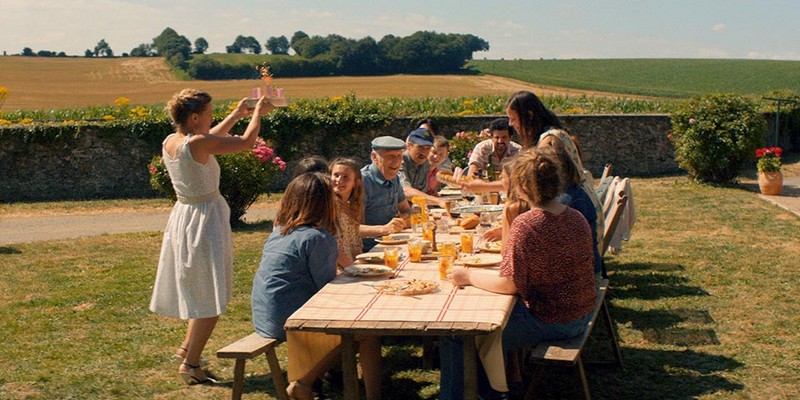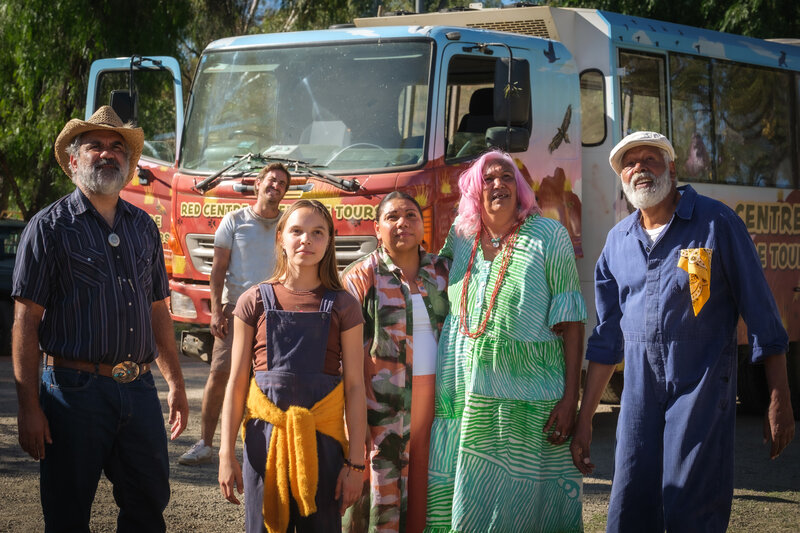In the Name of the Land is the first feature fiction film for Edouard Bergeon, a former photojournalist and documentarian. It has been largely inspired by the life of his own father, a farmer who passed away in 1996, and to whom the film is fittingly dedicated. This is a grim – often bleak – look at the hardships faced by farmers and depicts the harsh realities of life on the land. A postscript at the end tells us that, in France, a farmer commits suicide every second day on average. A sobering statistic. And the experiences of a farming family facing hardship, financial problems, corporate greed, natural disasters, family conflicts, and stress and depression will resonate strongly with Australian audiences.

French actor Guilluame Canet (Tell No One) plays Pierre Jarjeau, the prodigal son who, in 1979, returns home after several years working on a ranch in Wyoming and takes over the family farm. He plans to revolutionise the farm using modern technology and methodology, which leads to some clashes with his more traditional father Jacques (Rufus, a regular in the films of Jean-Pierre Jeunet). Pierre tries to diversify the farm’s operations as well and goes deeper into debt.
The film spans some twenty years and is something of a family saga. We observe the family dynamics and see the impact that Pierre’s descent into depression has on his supportive and long-suffering wife Claire (Belgian actress Veerle Baetens, from The Broken Circle Breakdown) and his oldest son Thomas (Anthony Bajon). Claire takes on a second job working at a bank in town, and Thomas helps out when he can.
Bergeon’s background in documentary filmmaking lends a realism to the farming scenes in particular. His handling of the material is sensitive and compassionate, understandable given his personal connection to the story. Visually the film is quite striking thanks to the widescreen lensing of cinematographer Eric Dumont (The Measure of a Man) which captures some striking landscapes, and the imagery is often reminiscent of Terrence Malick’s Days of Heaven. But Dumont also works in closeup at times, which lends a claustrophobic feel to those scenes in which Pierre suffers from depression and paranoia.
The film and its drama hinges around Canet’s raw performance as he runs the gamut from early enthusiasm and drive through to disappointment, anger, confusion, despair and bitterness as he watches his world collapse around him.
Given the often grim nature of the material, In the Name of the Land was something of a surprise hit at the French box office, and was nominated for Cesar awards.
Greg King
For more of Greg King’s writing on film, check out his blog at filmreviews.net.au
Other reviews you might enjoy:
- Alcarras – movie review
- The Biggest Little Farm – movie review (documentary)
- Belle & Sebastian 3: Friends for Life – movie review

Greg King has had a life long love of films. He has been reviewing popular films for over 15 years. Since 1994, he has been the film reviewer for BEAT magazine. His reviews have also appeared in the Herald Sun newspaper, S-Press, Stage Whispers, and a number of other magazines, newspapers and web sites. Greg contributes to The Blurb on film





